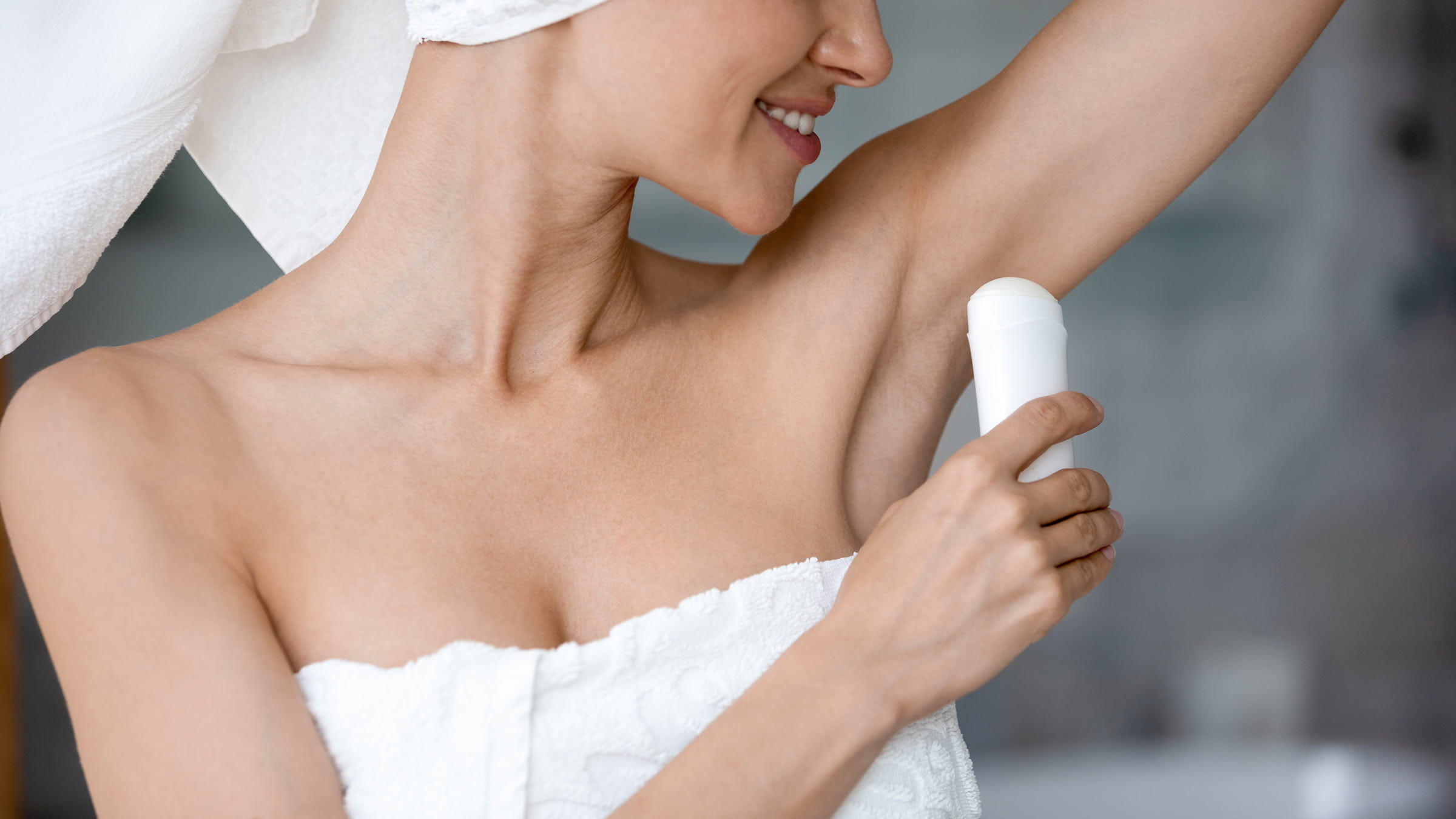
Whole-body deodorants are gaining popularity as a way to quash body odor.
People often think of applying deodorant only on your armpits, but now, companies are boasting a new line of deodorants that can be applied all over your body.
Smell an offensive odor? Dab deodorant on the source.
What’s the difference between regular and whole-body deodorants?
Regular and whole-body deodorants are going to have similar ingredients. But deodorants are not necessarily antiperspirants, so you may still experience sweating if you are just using a deodorant without an antiperspirant.
Antiperspirants and deodorants target two different issues. Deodorants help combat odor, and antiperspirants address sweating — but they are frequently sold together in a single, compounded product.
Different types of skin glands
When it comes to sweat and body odor, there are glands are called the eccrine and apocrine glands, with a higher concentration of these glands in places such as the axillae/armpits, groin/private areas and feet.
The eccrine glands primarily produce sweat, with perspiration serving to help regulate body temperature. The apocrine glands produce odor when bacteria normally found on your skin mixes with sweat.
Antiperspirants, with ingredients such as aluminum chloride, act by forming a plug that blocks the secretion of sweat from the eccrine glands.
Deodorants often contain fragrances to neutralize odors and bacteria.
Are these products safe? Do whole-body deodorants work?
Antiperspirants are regulated by the U.S. Food and Drug Administration as an over-the-counter drug. Companies must prove that their products are safe and must seek approval for a new antiperspirant to be released to consumers.
By contrast, deodorants are considered cosmetics and don’t require FDA approval. In general, these whole-body deodorants may be made of plant- and mineral-based ingredients, as well as essential oils (e.g., mint, cucumber, coconut, lavender) and acids to enhance an acidic pH level. The goal is to combat the bacteria that causes body odor when you sweat.
Overall, these ingredients are safe and not harmful to your health, as long as you aren’t sensitive or allergic to them.
The effectiveness, however, depends more on the individual — they can help some people but may not help everyone when it comes to decreasing odor.
Can whole-body deodorants disrupt your natural pH in sensitive areas?
You can develop skin irritation and sensitivity to different ingredients, even if they are considered “all-natural.”
Common culprits include the very ingredients that mask odor (fragrances, essential oils, scents).
Remember that these are for external use only. Never use whole-body deodorants inside your vagina. The vagina is self-cleaning, and applying products internally can disrupt the vagina’s regular pH, natural flora and skin microbiome, leading to worsening odor.
As with any new product, start with a small test area before applying to more generalized areas, particularly sensitive areas. As a dermatologist, I caution about the use of products with a lot of perfumes or fragrances, because people can develop irritant or allergic contact dermatitis if they have a sensitivity or allergy. Discontinue use if you experience any skin irritation.
Be mindful of the ingredients
Many products are advertised as vegan and free of aluminum, sulfates, phthalates and parabens.
Aluminum chloride is one of the most effective sweat reducers because it forms a plug that blocks the secretion of sweat from the eccrine glands. It’s a common ingredient found in antiperspirants.
The claims that aluminum in antiperspirants leads to other medical issues have been debunked. Current data shows that aluminum chloride-containing antiperspirants do NOT carry any risk of causing breast cancer or Alzheimer’s disease. I believe that antiperspirants with these ingredients are safe products to use.
Ways you can prevent sweating and odor
- Shower daily with antibacterial soaps targeted at specific culprit areas (groin/armpits/feet).
- Minimize sweating by staying cool and wearing loose-fitting, comfortable clothing that wicks away moisture. Avoid compression or tight-fitting undergarments. Wear cotton underwear. Change clothes when saturated with sweat, and shower after workouts.
- Remember “you are what you eat,” so watch your guilty pleasure foods, especially those known to cause worse odor, such as onions, garlic, and spices with a more pungent, distinctive flavor (such as cumin and curry); vegetables such as broccoli, cauliflower and kale. High protein/keto diets and extreme diets can be a common culprit. A well-balanced diet is a much more nutritious approach to healthy eating.
- Use products that are hypoallergenic. Be aware that your skin can be sensitive to the active ingredients, scents and fragrances in these products, so always start with a test area first.
- Sweating and body odor are normal and natural. It's nothing to be ashamed about, but both body odor and excessive sweating can be treated.
- Other factors may be contributing to your body odor: stress/anxiety, genetics, hormonal changes, obesity, medical conditions including diabetes, thyroid disorders and hyperhidrosis (excessive sweating that can be localized to specific areas of the body or generalized).
Follow up with your primary care physician and see a board-certified dermatologist if you have concerns.

Worried about your skin, hair or nails?
Ohio State's dermatology team provides comprehensive care backed by one of the nation's leading academic health centers.
Expert care starts here




